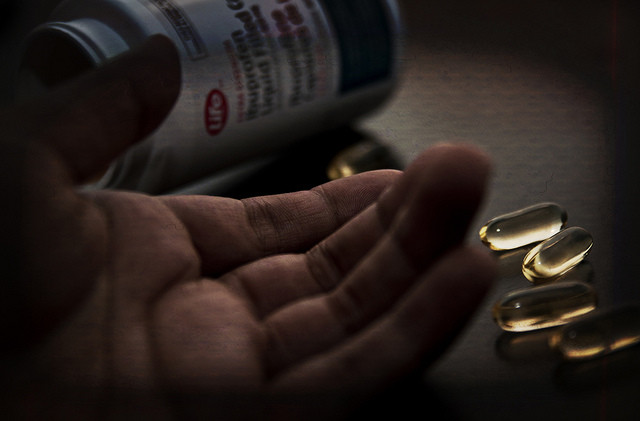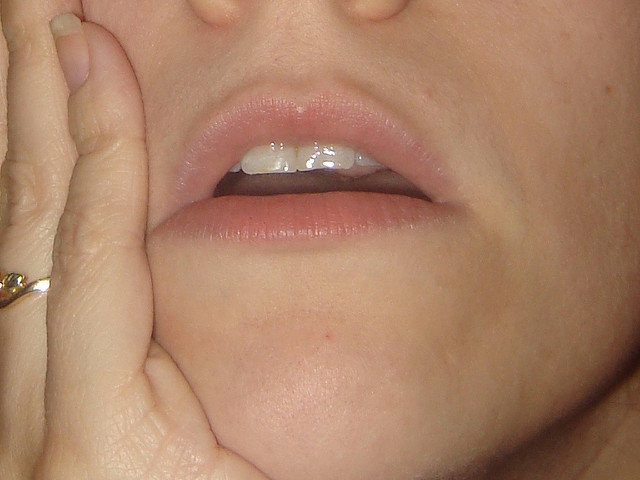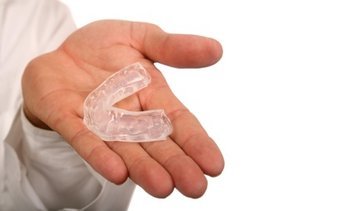RA and Jaw Pain: Can Rheumatoid Arthritis Cause Jaw Pain?
The joints of the jaw are complex. The temporomandibular joint (TMJ) is moved with the assistance of several muscles, bones and soft tissues. These joints see heavy use throughout the day as we eat, yawn, swallow, chat with friends and move our mouths to express emotion. If you are someone who grinds your teeth while you sleep at night, that puts even more stress on already heavily worked joints. Between all of this, it is not surprising that many people, particularly those who have rheumatoid arthritis, also develop joint pain and temporomandibular disorders (TMD).
What does rheumatoid arthritis have to do with jaw pain?
When many people think of arthritis, they think of old people with stiff or twisted hands. However, rheumatoid arthritis (RA) can affect any joint in the body. Unlike osteoarthritis, which is due to degradation of joints through overuse, RA is caused by an autoimmune problem. The immune system attacks healthy joint tissue by mistake, resulting in painful inflammation.

Researchers are not sure why, but a significant number of people who have RA also suffer from TMJ issues and jaw pain. According to one study, as many as 90% of RA sufferers may also have TMD. RA affecting the joints of the hands is a strong predictor of TMD severity.

Like RA, TMJ issues are more common in women. About three times as many women have issues with RA than men. They also tend to occur along with other health issues that include irritable bowel syndrome, fibromyalgia, migraines or chronic headaches and ringing in the ears.
What are the most common symptoms of TMJ problems?
People who have TMD may experience radiating pain from the joints, stiffness in their jaws, changes in the way their teeth align and locking of their jaws. Some people may have trouble eating hard or chewy foods. You may become aware of a scraping noise from inside your jaw. You may also experience clicking in your jaw when you move it. While many people believe that the clicking itself is the cause of TMD, it is most likely just another symptom.

Not all jaw pain and TMJ problems are due to arthritis. Other people may experience issues due to the muscle issue myofascial pain, joint damage or trauma to the area.
How to alleviate the symptoms of TMD and jaw pain
Jaw pain can be really unpleasant. It can make you not want to eat, talk or do anything else. These tips can help prevent and halt jaw pain:
- Switch to soft foods for a few days to rest the jaw.
- Avoid chewy candies and chewing gum.
- Avoid opening your mouth too wide when talking, yawning or eating.
- Massage the muscle around the joint.
- Avoid clenching your jaw. You may find that you do this when you are upset or under stress.
- Apply a warm compress to the jaw.
- Avoid resting your chin on your hand. This activity can put stress on your jaw and subtly push it out of alignment if you are susceptible to TMJ issues.
Exercises can also be helpful to prevent future TMJ pain. These should not be done when you are experiencing TMJ issues. If the area is painful and swollen, hold off until you are feeling better.

For one exercise, start by slowly opening your mouth. Curl your tongue up so that the tip is touching the roof of your mouth. Keeping your tongue in position, slowly close your mouth. Do this two to three times a day.
The other helpful exercise involves sitting in front of a mirror and slowly opening and closing your mouth. Assure that your jaw does not swing to one side or the other while you are opening and closing your mouth. You may need to apply pressure to one side of your jaw with your hand to keep your jaw in alignment. Do this 10 times, two to three times each day.
How doctors can help
If you suffer from TMD, your doctor may prescribe medication. Anti-inflammatories and pain relievers can help alleviate inflammation and pain. Muscle relaxants may help relieve any pain that is associated with a clenched jaw. Tricyclic antidepressants, which are historically used for depression, have been found to also have some affect against chronic pain.
Your doctor may prescribe mouth guards or oral splits to reduce jaw pain and help with jaw alignment. Physical therapy may also be used.

When these methods do not work, your doctor may consider surgery. There are a number of surgical procedures that might be helpful which include minimally invasive procedures from injecting small amounts of fluid to open jaw surgery to address problems with the joint.
Summing Up
If you suffer from jaw pain, careful lifestyle adjustments can help relieve symptoms and make you less susceptible to further jaw problems. If these measures do not help then see your your doctor. It is important to know that persistent TMD, unresponsive to conventional therapy, could be a symptom of RA.
